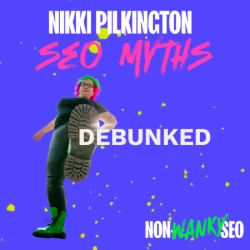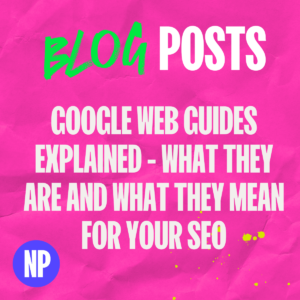Parasite SEO promises easy rankings by publishing content on high-authority sites instead of building your own domain strength. The problem is, Google killed this strategy in 2024 – the people still banging on about it just haven’t kept up.
Parasite SEO sounds tempting on paper. Find a high-authority website, publish your content there, and instantly benefit from their domain strength. Forbes, LinkedIn, Medium – they’ve all got massive authority, so surely getting your content on their platforms is pure SEO gold?
Except Google cottoned on to this little scheme and decided they’d had quite enough of it, thank you very much.
In March 2024, Google launched their Site Reputation Abuse policy, and by November they’d updated it again. The message was crystal clear – stop exploiting other people’s authority to rank content that wouldn’t stand a chance on your own site.
Major publishers got absolutely hammered by Google’s site reputation abuse update for exactly this nonsense. Google can spot when you’re trying to exploit other sites’ authority instead of building your own.

Spotting the parasite SEO merchants
- They promise “instant authority” by publishing on high-DA sites. If building authority was that simple, everyone would be doing it successfully. Real authority takes time to build. It’s based on genuine expertise and trust.
- They focus on domain metrics rather than relevance. Publishing financial advice on a sports website just because it has high domain authority makes about as much sense as selling lard kebabs at a yoga retreat.
- They can’t explain how you’ll maintain control over your content. When you’re dependent on third-party platforms, you’re at their mercy. Terms change. Policies update. Suddenly your “secret weapon” becomes a liability.
- They dismiss the risks of policy violations. Google’s guidelines aren’t suggestions – they’re rules. Agencies that wave away policy concerns are setting you up for penalties.

It’s not value, it’s a loophole
When you publish content on someone else’s high-authority site purely for SEO benefit, you’re not creating value. You’re exploiting a loophole. That casino content appearing on a respected news site? The sudden appearance of affiliate marketing articles on educational platforms? Google spotted these patterns and decided to do something about it.
The November 2024 update specifically targeted sites hosting third-party content that was clearly designed to manipulate search rankings rather than serve the site’s actual audience.
Sure, you might see some short-term gains. But when Google catches up (and they will), you’ll be scrambling to remove all that content faster than a teenager deleting their browser history.

Why this strategy backfires
Even if you avoid immediate penalties, parasite SEO creates fundamental problems for your business. You’re building your SEO strategy on someone else’s foundation. When they change their content policies, restructure their site, or decide they don’t want your type of content anymore, your rankings disappear overnight.

You’re also training yourself to avoid the hard work of building genuine authority. Instead of developing expertise, creating valuable resources, and earning trust in your industry, you’re looking for shortcuts that teach you nothing about sustainable SEO.
And let’s be honest – if you’ve got enough quality content to rank on high-authority sites, why not put that effort into your own domain instead? Build something that lasts rather than trying to leech off others’ success.

Where your focus should be
Focus on building authority where it belongs – on your own website. Create awesome resources that show genuine expertise in your field. Develop case studies that show real results. Share insights that can only come from actual experience in your industry.
Build relationships with other websites in your space, but do it properly. Guest posting on relevant sites where your expertise genuinely adds value to their audience isn’t parasite SEO – it’s legitimate collaboration. Everyone benefits.
Earn citations and mentions from authoritative sources by becoming a genuine expert worth referencing. When journalists need quotes for industry articles, be the person they call because you know what you’re talking about.
Invest in content that serves your actual audience rather than trying to trick algorithms. Google’s getting better every day at understanding user intent and content quality. The sites that focus on genuinely helping their visitors are the ones that maintain long-term success.

Stop renting your SEO success
Parasite SEO might seem clever in the short term, but you’re essentially building your business on borrowed ground. You’re working hard to promote someone else’s domain while your own site remains weak.
Google’s site reputation abuse policy isn’t going anywhere. If anything, they’ll probably get more aggressive about enforcing it as their AI gets better at spotting these manipulation tactics.
Save yourself the headache and build something that belongs to you. It takes longer, requires more effort, and isn’t as exciting as the latest SEO “hack,” but it’s the difference between renting and owning your digital presence.





